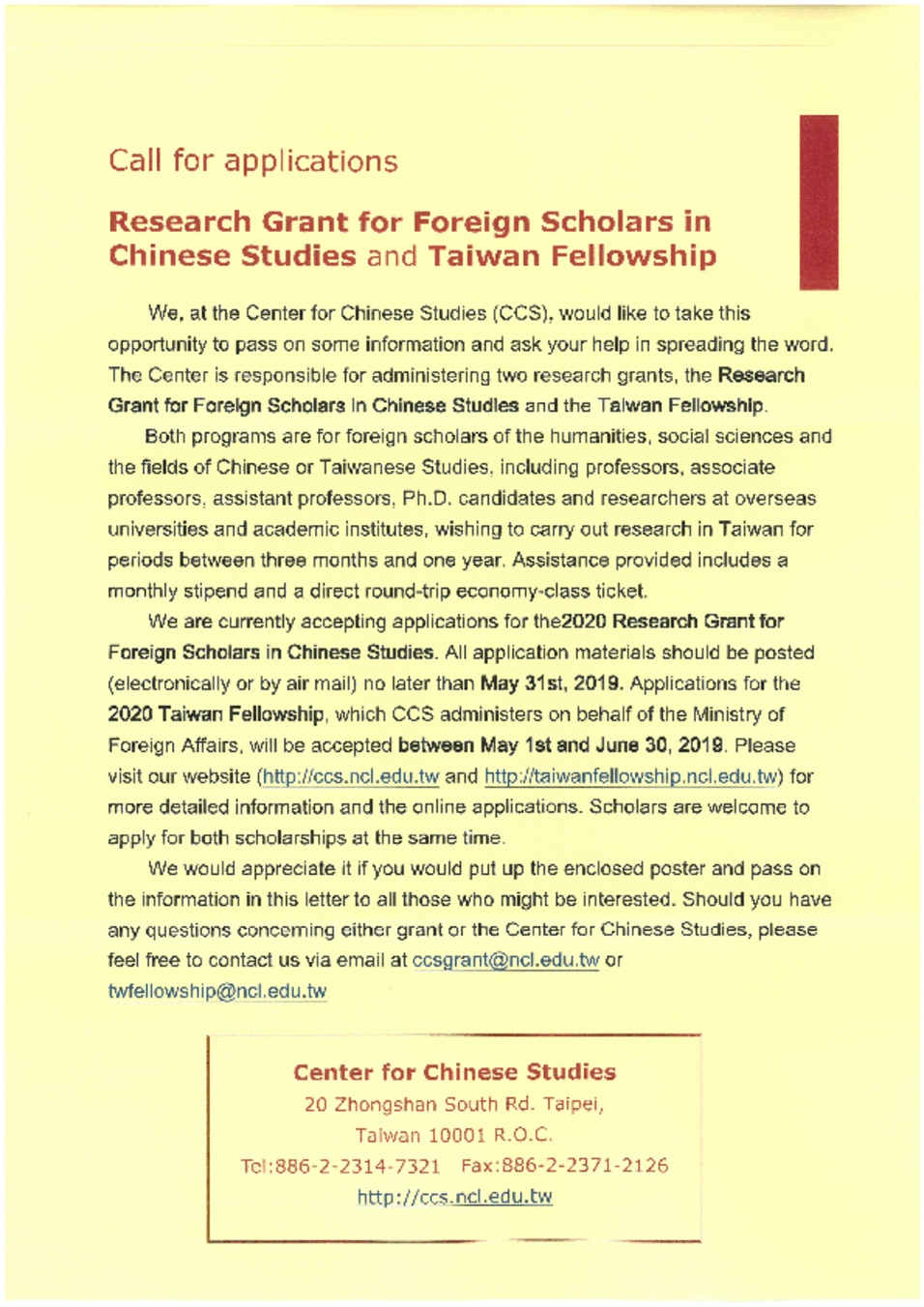This program is aim[ed] at foreign professors, associate professors, assistant professors (including post-doctoral researchers) and doctoral candidates in departments related to Chinese studies at foreign universities, as well as researchers at related foreign academic institutes.
Research tenure is one month to one year.
CCS provides assistance with research expenses, research materials, liaison with universities and research institutions, and use of CCS facilities, etc.
For more informationen please follow the link above and/or click on the picture to your right.

